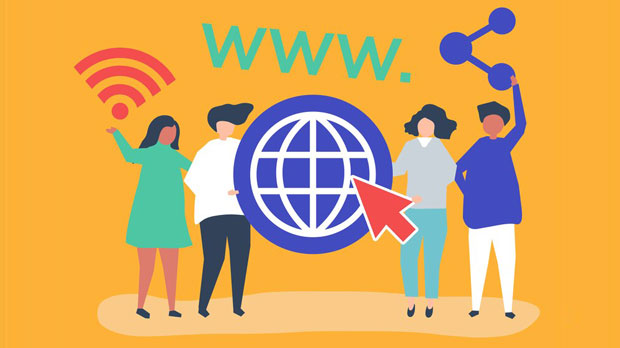When it comes to accessing YouTube in regions where it may be restricted or when facing bandwidth limitations, many users turn to free web proxies as a potential solution. But can these free web proxies provide a smooth streaming experience? The answer isn't straightforward, as it depends on a range of factors, including the reliability of the proxy service, the user's internet connection, and YouTube's adaptive streaming technology. In this article, we will explore whether free web proxies can deliver seamless YouTube streaming, considering both the technical aspects and the practical challenges users face. Understanding Free Web Proxies and Their FunctionalityFree web proxies are online services that allow users to access websites and online content while masking their IP addresses. These services act as intermediaries between the user and the content they wish to access. When a user connects to a free web proxy, their request to access a site, like YouTube, is routed through the proxy server. The server then sends the request to YouTube, fetches the content, and returns it to the user. This provides a level of anonymity and the ability to bypass geographical restrictions, but at what cost in terms of performance?Factors Affecting YouTube Streaming Performance Through Free Web Proxies1. Server Load and Proxy Speed One of the most significant factors that determine the quality of streaming through free web proxies is the speed of the proxy server. Free proxies typically suffer from high server load due to the large number of users utilizing the service simultaneously. This can lead to slower connection speeds, buffering, and interruptions during streaming. Unlike paid services, which often allocate resources more efficiently, free proxies often prioritize access over performance, resulting in slower streaming experiences.2. Latency and Geographic Location Latency, or the delay in data transmission, is another crucial factor. The further the proxy server is located from the user's physical location, the higher the latency. This can result in a delay between pressing play on a video and seeing it begin to load. Additionally, if the proxy server is located in a country where YouTube access is unrestricted, users may benefit from better performance compared to a proxy server located in a region with network congestion or restrictions.3. Bandwidth Limitations Free web proxies often have strict bandwidth limits in place to prevent overuse of their free resources. As a result, streaming high-definition content on YouTube may be hindered by the proxy's inability to handle large amounts of data efficiently. Even if the user’s internet connection is capable of supporting high-speed streaming, the proxy server might throttle the connection, resulting in low-resolution video or buffering.4. Encryption and Privacy Considerations Free web proxies often provide basic encryption to secure the user's data. However, the level of encryption is usually not as robust as that of paid services. This can lead to security vulnerabilities and potential interruptions in streaming, especially when dealing with high-bandwidth content like YouTube videos. In some cases, proxies may also block certain types of traffic to prevent overloading, further impacting the quality of streaming.Challenges of Using Free Web Proxies for YouTube Streaming1. Quality and Resolution Restrictions YouTube adjusts the resolution of videos based on the user's connection speed. If the proxy server is slow or experiences bandwidth throttling, YouTube will default to lower resolution settings, resulting in a poor viewing experience. Free web proxies may not be capable of handling the high-resolution streams, leading to frequent downgrades to lower resolutions such as 360p or 480p.2. Potential for Buffering and Interruptions Due to the high traffic on free proxy servers, users are more likely to experience buffering. This is especially true during peak times when many people are using the service. Buffering can cause significant interruptions in streaming, disrupting the viewing experience and making it difficult to enjoy content seamlessly.3. Limited Access to Region-Specific Content While free web proxies can help bypass geographical restrictions, they are often not as reliable at unblocking region-specific content on YouTube. Certain YouTube videos or channels may be geo-blocked, meaning they are only available in specific countries. Free proxies may not always be able to access these blocked videos, especially if the proxy server’s IP address is already flagged by YouTube’s content delivery system.Are Free Web Proxies Worth Using for YouTube?While free web proxies can offer a basic solution to accessing YouTube, they are often not the most reliable option for smooth streaming. For users who are looking for an uninterrupted, high-quality YouTube experience, free web proxies come with too many limitations. The slow speeds, high latency, and potential security risks make them less ideal for streaming content, especially when high-definition video is involved.Alternatives to Free Web Proxies for Seamless YouTube StreamingFor those who need to stream YouTube content smoothly, there are more reliable alternatives to free web proxies. These include:1. Paid VPN Services Paid Virtual Private Networks (VPNs) offer a more stable and secure connection for bypassing geographical restrictions and streaming content. VPNs provide dedicated servers, better bandwidth management, and stronger encryption, which results in smoother streaming experiences. Additionally, many paid VPN services allow users to select a server in the specific region where they want to access content, ensuring better performance and security.2. Dedicated Proxy Servers For those who require a proxy solution, dedicated proxies offer a more robust option. Unlike free web proxies, dedicated proxies provide users with a private connection to a proxy server, ensuring faster speeds and more stable performance. These proxies are ideal for those who want to access YouTube without the interruptions and slow speeds associated with free proxies.3. Streaming-Optimized Services Some services are specifically designed for streaming, such as specialized streaming proxies or content delivery networks (CDNs) that optimize video delivery. These services are built to handle high-bandwidth demands, reduce buffering, and improve streaming quality.In conclusion, free web proxies may provide a basic solution for accessing YouTube, but they are not the best option for those seeking smooth and uninterrupted streaming. The limitations in speed, security, and reliability make free proxies unsuitable for high-quality video playback. For a better YouTube experience, users should consider alternatives such as paid VPN services, dedicated proxies, or streaming-optimized services. By investing in these options, users can enjoy a faster, more secure, and smoother YouTube streaming experience.
May 23, 2025



































































